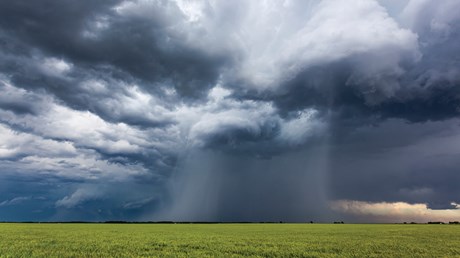A geophysicist on balancing God’s sovereignty over nature with human understanding of weather.

Thomas P. Ackerman navigates a world of difficult questions and tense conversations. A geophysicist at the University of Washington and director of the Joint Institute for the Study of the Atmosphere and Ocean, he is at the forefront of research on geoengineering, a science that focuses on manipulating the environment to, among other ends, combat climate change. Ackerman thinks a lot about ethics as he researches how making clouds more reflective could compensate for a warming planet. He shared how a life spent trying to understand the climate has contributed to his understanding of God.
People often think of God as bringing the rain or the seasons. What does climate science say about God’s control?
One of the sections of the Bible that I’ve turned to the most often is the end of the Book of Job [38–40]. God talks to Job, and there is this beautiful series of scientific questions. And God says to Job: “Do you understand this? Do you understand this? Do you understand this?” And the answer of course, to all of them, is “No, I don’t understand them.” And Job ends up concluding, “All of this is too wonderful for me”—that the knowledge of God is beyond his knowledge.
I resonate with Job. There’s this sense that people have that science makes you less in awe of the power of God, and that’s just frankly a bad idea. People say, “Do you think God is in control?” I say, “Sure. Let’s talk about how God controls the weather not whether God controls the weather.”
This is where it really gets tricky: What’s the role of prayer in physical systems? Let’s take hurricanes. People see a hurricane trucking up the coast. They …
Source: Christianity Today Most Read